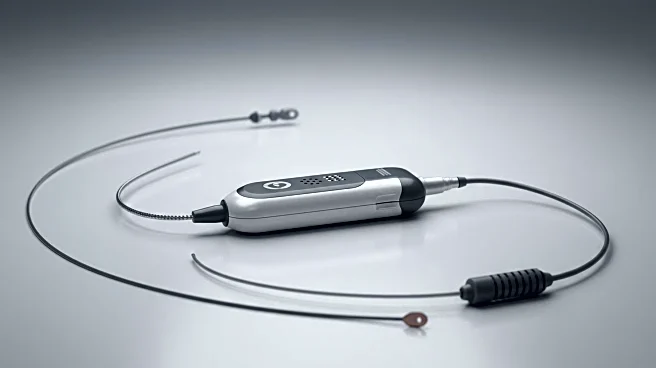What's Happening?
Simpson Interventions, a medical technology company, has initiated a pivotal clinical trial for its Acolyte Image-Guided Crossing and Re-Entry Catheter System. The trial, conducted at Emory University Hospital, aims to evaluate the safety and effectiveness of the system in treating coronary chronic total occlusions (CTOs). These occlusions occur when a coronary artery is completely blocked by plaque, posing significant challenges for interventional cardiologists. The Acolyte System provides real-time visualization of intravascular morphology, potentially improving the predictability and reliability of revascularization procedures. The trial plans to treat a minimum of 103 lesions across up to 15 sites. The system has been designated as a Breakthrough Device by the FDA and is part of the FDA Total Product Life Cycle Advisory Program.
Why It's Important?
The development of the Acolyte Catheter System represents a significant advancement in the treatment of coronary CTOs, which affect 16-20% of patients with coronary artery disease. Current treatment options are limited, often requiring invasive coronary artery bypass surgery if minimally invasive techniques fail. The Acolyte System could provide a less invasive alternative, benefiting patients, cardiologists, and healthcare systems by reducing the need for more invasive procedures. The success of this trial could lead to broader adoption of the technology, improving patient outcomes and potentially reducing healthcare costs associated with coronary artery disease.
What's Next?
As the clinical trial progresses, further data will be collected to assess the system's effectiveness and safety. If successful, the trial could lead to additional regulatory approvals and wider clinical use. Stakeholders, including hospitals and insurance payers, will be closely monitoring the trial's outcomes, as the system promises to enhance treatment options for a challenging condition. The results could influence future guidelines and standards of care in interventional cardiology.








